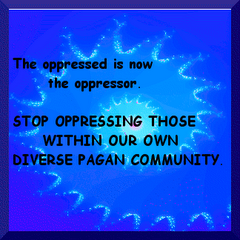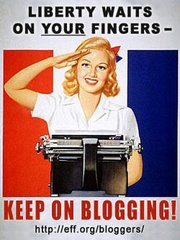Tuesday, May 14, 2013
If I Was to Design an Addictions Treatment Program
I reviewed the book Clean by David Sheff over at sapphoq reviews
http://sapphoqreviews.blogspot.com/2013/05/clean-by-david-sheff.html . I have been thinking: Since so much of addictions treatment is a sort of cloning of the Twelve Steps what would I do in a perfect world. In other words, if I was to design a treatment program what would it look like?
Before admission to any component of the treatment program, a customer will have a complete physical with follow-up testing if indicated, a dental evaluation, a vision check and a hearing test, and a mental health evaluation. Ideally, all health issues will be identified before acceptance into any part of the treatment program. All health issues should be addressed and treated while the customer is in any part of the treatment program.
The treatment program offers the following services: medical detox, crisis center, sobering up, emergency shelter, in-patient rehab, out-patient rehab, supervised and supportive apartment programs [including off-site, that is a customer can stay in their current home or apartment with staff supervision or support], halfway house, three quarter way house. A customer may enter the treatment program at any level of care as needed.
Medical Detox is for those who need it. A customer will be evaluated and admitted to detox if medically indicated. Those in detox will be given the proper medications in order to avoid the misery of cold turkey withdrawal. Any customers who are candidates for disulfirm [generic Antabuse] or an opioid replacement protocol [methadone] will be identified. Customers who agree to the recommendation will be started on disulfirm or opioid replacement before discharge.
The In-Patient Rehab Schedule
Breakfast: 8 a.m. through 10 a.m.
Lunch: 12 noon through 2 p.m.
Dinner: 5 p.m. through 7 p.m.
Customers who want to eat will make themselves a nutritious meal in the kitchenette. They will also be responsible for cleaning up after themselves.
10:15 a.m. through 10:45 a.m.
10:45 a.m. through 11:15 a.m.
11:15 a.m. through 11:45 a.m.
2:15 p.m. through 2:45 p.m.
2:45 p.m. through 3:15 p.m.
3:15 p.m. through 3:45 p.m.
3:45 p.m. through 4:15 p.m.
4:15 p.m. through 4:45 p.m.
7:15 p.m. through 8:00 p.m.
8:15 p.m. through 9:00 p.m.
Customers will have a choice of participating in a topic group or activity centered around F.-S.P.I.E.S.
Financial: a topic group that teaches budgeting for food, clothing, household goods, rent or mortgage, education, savings.
Social: a topic group that teaches social skills; or a voluntary committee that plans for social events for the rehab e.g. a dance, movie night, a tea, a birthday or other celebration, an open mic event etc. If a customer chooses, participation in a self-help group* in-house can also be made available.
Physical: use of a pool, trails in the woods, a park, weight room, in-house gym, bicycle-riding, birding, gardening, or other recreation involving fitness or movement alone or with others of one's choosing in-house, on the grounds, or nearby.
Intellectual: a topic group that teaches S.M.A.R.T. goal-setting or cognitive thinking skills; or pursuit of intellectual activities alone or with others of one's choosing. Intellectual activities might include research in the library or on the internet, writing, reading, artwork using a variety of mediums of one's choosing, logic puzzles, work in a language lab on a language of one's choosing, etc. If a customer chooses, an individual session can also be held.
Emotional: a topic group that is centered on topics related to the regulation of emotions, education on medications and behavioral health/neurological conditions, relationships within the family or intimate partner or friends or outside community, trauma recovery, etc.
Sexual: a topic group that addresses sex, sexual expression, sexual orientation, gender orientation, and similar concerns.
*self-help or mutual aid groups:
Alcoholics Anonymous
Narcotics Anonymous
Gamblers Anonymous
Smokers Anonymous
Overeaters Anonymous
Overcomers Anonymous
Alanon
Adult Children of Alcoholics
Co-dependents Anonymous
Weight Watchers
T.O.P.S.
Secular Organization for Sobriety [Save OurSelves]
Women for Sobriety
Random Notes for the in-patient rehab:
Community Resources: Customers who are stable can access the outside community for events however they must arrange to use public transportation, a taxi, a ride, or they can walk. There is no van available to pile people into in order to get them to go places.
Rec and other activities should focus on things that are not within the realm of "sight-seeing." Acting like a tourist usually involves gas and admission fees. Customers may not have access to either one after leaving treatment. Therefore, the focus will be on the practical and the frugal. Any customer who is not yet able to function in a group will be redirected to choose non-group activities.
Religious practice: Customers who wish to engage in religious practices will be permitted to do so. Those who are stable can access the outside community in order to attend religious services and other activities conducted by a religious group of their choosing.
Downtime: Customers who have neurological or physical conditions or diseases may need more down time or recovery time after group or rec activity. Those who need to may elect to rest quietly in their rooms on an as needed basis.
Individual Counseling and Group Work: will focus on F.-S.P.I.E.S. The inpatient rehab will not address the twelve steps in any individual or group session. Introduction to the twelve steps will be left entirely to those outside twelve step groups who come into the facility to conduct meetings.
Aftercare Planning: The customer, staff, and any involved individuals of the customer's choosing will develop an aftercare plan. If the customer refuses an aftercare recommendation of staff, then more planning must be done until a plan is developed that is acceptable to the customer.
Homework or written assignments: will not be given. There is to be no assignments given by staff to the customers to complete, period.
Journals: If a customer elects to keep a journal, its' privacy is to be respected.
Mail: Customers who receive mail will be asked to open it in front of staff and to shake out each letter or card. This will be done in order to minimize any attempts to be sent drugs. Staff will not confiscate any mail. Any drugs or suspicious items sent to the customer will be turned over to the local police.
Phone calls: Customers may receive phone calls. If the customer is not available, the caller will be directed to call during the next scheduled meal hours.
Complaints: Customers will have access to a private telephone on demand in order to call the State and overseeing agencies. Names and numbers will be posted and available in the customer manual.
Staff: All staff must be Masters' level or PhD level clinicians. Additionally, addictions medical specialists, psysiatrists, psychologists, and psychologists are available in-house at all times.
Visitors: Visitors are permitted during mealtimes. Visitors are encouraged to eat and socialize with the customers that they are visiting. A private area for visitation will be provided if asked. Visitors may come at other times upon request.
Therapeutic Discharges: There will be no therapeutic discharges. If a customer is not responding to treatment, then the treatment plan has to be changed in order to better reflect the needs and strengths of the customer. If a customer uses during in-patient treatment, the customer will address the issue during individual sessions and/or topic groups. Motivational interviewing is utilized in order to demonstrate that abstinence is achievable. If the treatment program is unable to assist the customer, the customer may be given the option of a non-punitive transfer to another facility. A few customers may elect to transfer to out-patient with or without residing in a halfway house, three quarter way house, supervised or supportive apartment programs before official completion of the in-patient program or scheduled termination date.
Illegal Activities: If a customer engages in illegal activities e.g. bringing illegal drugs onto the premises or assaulting another customer or a staff, the local police will be notified.
The Out-Patient Rehab is for those customers who are residing in the community in a halfway house, three quarter way house, supervised and supportive living programs, or independently. Customers will attend out-patient for one, two, or three hours a day. Topic groups will focus on maintaining a lifestyle consistent with freedom from active addiction. Again, F.-S.P.I.E.S. will be the basis of discussion. Rec and other activities will be made available to those who cannot focus in topic groups. A customer may attend one-on-one counseling sessions in lieu of topic groups if he or she so chooses. While the topic groups for out-patient will be separate from those offered to in-patients, rec and other activities may take place individually or with a few others of one's choosing from both the in-patient and the out-patient population. It is expected that those who wish to attend self-help groups while in out-patient will do so on their own time.
Random Notes for the Out-Patient Rehab:
There will be:
no van to cart people around,
no homework or written assignments,
no inspection of journals or private writings,
no therapeutic discharges,
no visitors,
no distribution of mail.
There will be:
use of a private telephone and privacy for complaints,
use of a telephone made available for calls to social service
and other agencies,
help to identify and access community resources,
help to identify and access natural supports,
employment and educational counseling if desired.
Illegal Activities: If a customer engages in illegal activities e.g. bringing illegal drugs onto the premises or assaulting another customer or a staff, the local police will be notified.
The halfway house, three quarter way house, and supervised and supportive apartment programs will not address clinical issues. The focus of the residential piece will be entirely on activities of daily living. A.D.L.s include standard household chores and responsibilities. Obtaining and maintaining employment will be addressed individually as needed. Staff will hold at least a bachelor's degree and be licensed as addictions professionals. There is to be no topic groups in the residential piece of the rehabilitation program.
In conclusion: In my opinion, addictions treatment programs have by and large focused on twelve step recovery combined with pop psychology. Although there are a few addictions counselors who do not employ such measures, the addictions field is woefully full of professionals who are advocates of things like The Secret, affirmations, and other New Age crap.
sapphoq and friends maintain that: The twelve steps are best left to those groups who practice a twelve step recovery. Pop psychology, affirmations, and woo-woo may produce a temporary "feel good." People seeking treatment in order to cease a self-destructive lifestyle of active addiction deserve better. In my opinion, that "better" involves focusing on F.-S.P.I.E.S.
Subscribe to:
Post Comments (Atom)



No comments:
Post a Comment